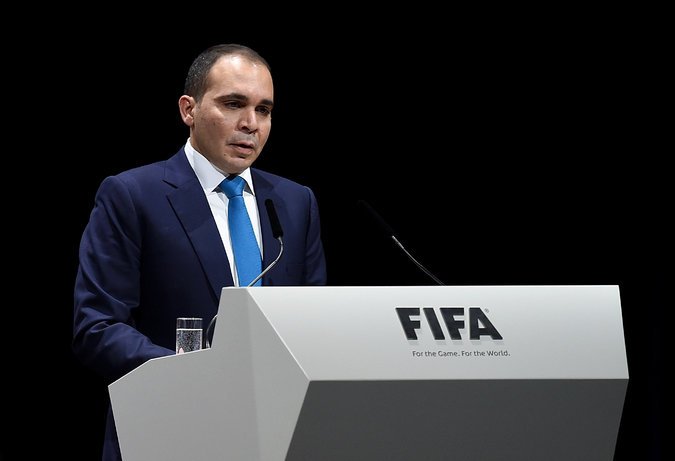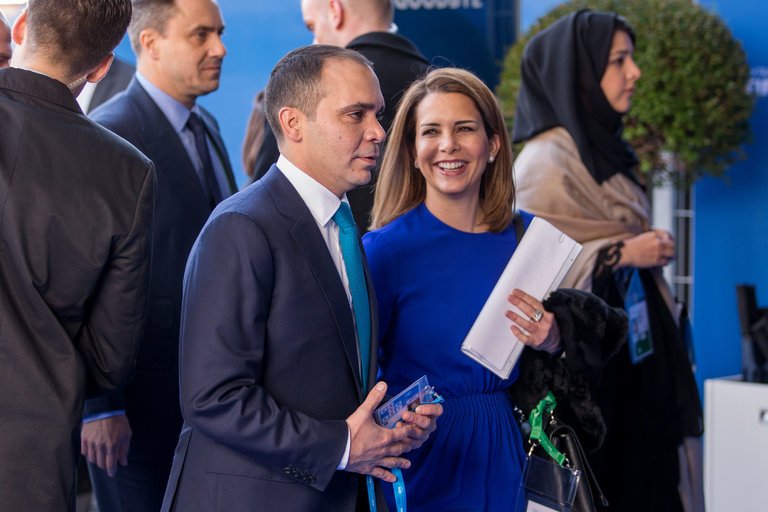This material belongs to: The New York Times.
LONDON — A Jordanian princess who is married to the billionaire ruler of Dubai has for more than a year been discreetly working with British private investigators in an attempt to collect evidence of corruption in global soccer, according to several people with direct knowledge of the effort.
The princess, Haya bint al-Hussein, has hired Quest, a global advisory and investigations firm based in London, to help in her effort. The firm’s investigators have sought to meet with current and former FIFA officials, as well as scores of others from the often shadowy world of soccer politics. Quest officials also have been in contact with federal investigators in the United States, according to two of the people with direct knowledge of the investigation.
It is unclear what new information, if any, the investigators have uncovered, but the involvement of Princess Haya, whose brother Prince Ali bin al-Hussein was twice a losing candidate for the presidency of FIFA, soccer’s global governing body, suggests that while FIFA has claimed to have entered an era of reform since a corruption scandal toppled its leadership in 2015, its days of palace intrigue are far from over.
The investigation also raises the possibility that there may be more accusations of wrongdoing for a sport brought low by the series of indictments and arrests against top officials led by United States prosecutors in 2015. The United States case led to the fall of almost of all of FIFA’s top leadership, including its former president Sepp Blatter, who had defeated Prince Ali in an election in May 2015, only days after the Swiss police arrested several members of FIFA’s executive board at the request of the United States Department of Justice.
When Blatter was banned from soccer later that year, Prince Ali ran again for the presidency, losing out in February 2016 to the current FIFA president, Gianni Infantino, after an acrimonious election. Princess Haya, the former president of the international governing body for equestrian, managed her brother’s FIFA campaigns.
Since the 2016 defeat, Princess Haya has kept a relatively low profile around the game, while FIFA has continued to sustain attacks on its integrity. Last week, a former member of the organization’s governance committee — the group that effectively acts as its gatekeeper to prevent unscrupulous individuals from gaining powerful roles — filed an ethics complaint against Infantino and other senior officials, accusing them of attempting to block the committee’s work. The committee’s former chairman, Miguel Maduro, detailed similar allegations at a hearing convened by British lawmakers.
Infantino, a Swiss lawyer, is up for re-election in 2019. He ascended to the FIFA presidency after the banishments of Blatter and Michel Platini, Infantino’s onetime boss at European soccer’s governing body, UEFA. Infantino prevailed in a campaign that stood out for its record offers of development funding to voters from FIFA’s 211 member nations, defeating both Prince Ali and Sheikh Salman bin Ebrahim al-Khalifa, a member of Bahrain’s royal family.

It is unclear if Prince Ali, who was once a FIFA vice president, and continues to lead Jordan’s soccer federation, will make a third push for the FIFA presidency. Infantino’s tenure as FIFA president has been bumpy from the outset. He was cleared in a previous ethics probe related to improper expense claims and the use of a private jet, and The Guardian reported in June that Infantino and FIFA’s general secretary, Fatma Samoura, sought to improperly influence the contest to lead soccer in Africa on behalf of their favored candidate.
FIFA’s struggles to move on from its scandal-tinged past were highlighted in a letter of resignation from Navi Pillay, a renowned International Criminal Court judge and former United Nations High Commissioner of Human Rights, who quit FIFA’s governance panel after Maduro’s surprise ouster by Infantino in May. In her resignation letter to Samoura, Pillay accused FIFA’s leadership of violating “the norms and standards of good conduct.”
Princess Haya, who is married to Sheikh Mohammed bin Rashid al-Maktoum, one of the world’s richest men, previously hired Quest to work on Ali’s previous campaigns. In at least two instances, the group has shared information with United States authorities, whose investigations into global soccer continue. Meanwhile, the authorities in Switzerland and France also are looking into allegations of wrongdoing, with a particular focus on the controversial decision in 2010 to award the 2018 and 2022 World Cups to Russia and Qatar.
She and Prince Ali declined to confirm the current information-gathering effort, but each confirmed to The New York Times that they had worked with Quest.
“When my brother Ali asked me to manage his FIFA election campaign, we agreed that integrity had to be the dominating factor of the campaign,” Princess Haya said, adding: “Quest ensured that we acted with the utmost integrity at all times, as well as protecting our campaign from numerous unethical approaches by reporting these to the electoral committee in the correct and professional manner. As I am still required to give an informed opinion at the highest level, I choose to continue to work with Quest.”
Prince Ali confirmed in a statement that he had reported a number of “unethical approaches” during his election to FIFA without detailing what they were. “My duty to ensure that football is governed with only the highest level of integrity is continuously affected by the continuing breaking news of ethics and integrity issues at FIFA,” he said. “This shows how important it is for Quest, on my behalf, to keep up to date with developments in the world of football.”
Quest, whose chairman, John Stevens, is a former head of London’s Scotland Yard, declined to comment about its work on behalf of Princess Haya or Prince Ali. The agency has conducted investigations into sports before, including one on behalf of England’s Premier League into possible irregularities in the player transfer market. Stevens is also an adviser to the International Centre for Sport Security, a Qatar-financed organization launched months after the controversial vote to award that country the hosting rights to the 2022 World Cup.
The first trial related to officials indicted in the Justice Department’s soccer corruption case are scheduled to begin in November in New York. Charges have been filed against about 40 different individuals and entities, including the former heads of soccer’s two regional governing bodies in the Americas.
In April the net spread to Asia, when a member of FIFA’s audit and compliance body pleaded guilty in federal court to accepting nearly $1 million bribes in exchange for using his influence to promote candidates in international and regional elections.
Quest’s staff have been present around various FIFA meetings, and were especially active during Prince Ali’s campaigns, where some of the lobbying took place at plush gatherings and exclusive hotels around the world. Recently, they have acted as intermediaries between the United States authorities and soccer officials who may have evidence of wrongdoing yet to feature in ongoing charges, according to two people familiar with the matter.


